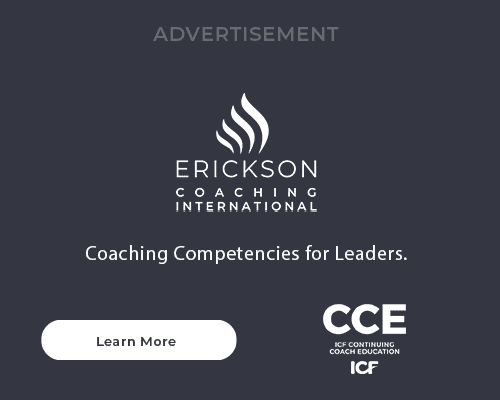Thriving Leaders
It’s an understatement to say we live and work in an increasingly complex world. More than two decades ago I explored this with a cross-cultural group of information technology leaders during a series of change leadership programs. No matter what age or ethnicity, the leaders admitted having knee-jerk reactions to the relentlessness of change—they fought it, vented about it, blamed others, disengaged from work, withdrew from loved ones, neglected their self-care. They wholeheartedly agreed that operating out of anxiety eroded self-confidence and well-being, goodwill in their relationships, and the morale and performance of their teams. They experimented with better coping skills for handling their demands. On the surface, this seemed like a powerful approach to developing leaders. Yet my intuition said lurking beneath our work together was a debilitating belief: If we work harder (longer, faster), we will finally get in front of the complexity we face. The hamster wheel of stress we’re on will stop soon.
But that time never arrived, and it likely never will. When IBM recently interviewed 1,500 CEOs of global organizations across industries, 79 percent forecasted complexity to rise across the planet and more than half doubted their ability to manage it. Perhaps more disheartening is Gallup’s 2015 poll of managers across cultures: 65 percent report being disengaged or actively disengaged at work.
At its most fundamental, I view organizational leadership as the role of shaping the emotional and physical environment in which people can show up at their best, make wise decisions, perform effectively toward responsible goals and the inspired mission of the organization, and flourish by way of work. A leader who is ill-equipped for complexity and disengaged from work is more likely to cultivate the same in people and workplaces—definitely not a recipe for thriving.
The Well-being Revolution
The good news? Humankind is not responding to our interdependent, always-on world with reactiveness alone; we’re also becoming more conscious of our role in creating it. This age of complexity is prompting us to ask new questions about what it means to be human. When we open our hearts and minds to these questions, we learn to be more purposeful, empowered, connected and whole. We are in the midst of a revolution where these and other well-being values are altering how we live and work.
This well-being revolution is a game-changer, and the ability to lead well-being is an increasingly critical competency for leaders. The real question is, are leaders ready?
Ready to Lead?
In 2004 my team asked 50 forward-thinking executives and futurists what qualities and behaviors are required of leaders committed to generating well-being, high performance and sustainability. Our study yielded a list of 550 leadership behaviors, broadly categorized, that are expected of good leaders. The categories included:
- Taking a big-picture approach to complex situations
- Demonstrating high integrity in decisions and commitments
- Forging inclusive and collaborative relationships with a broad system of stakeholders
- Being vision-driven
- Producing socially and environmentally responsible innovations
- Promoting sustainable growth
- Continually building capabilities and learning
- One particular category stood out: using well-being as a strategic leadership resource.
This category called on leaders to direct an organization’s vision and values, strategy and brands, culture, systems, and structures—essentially, everything that constitutes the organization—toward uplifting and enhancing life rather than unintentionally (or intentionally) harming it. For most organizations, that meant a total overhaul.
The executives and futurists we spoke to made it clear that organizational revamp could only succeed if leaders learned how to use well-being as a strategic resource personally. Institutions, organizations and communities are mirrors of how we think and what we value, so transforming them necessarily means transforming ourselves. Some behaviors the study participants deemed critical for leaders included:
- I seek to live an integrated, functional life today, rather than putting such goals off to an indeterminate future.
- A deeper drive for health and sustainability guides my pursuits as a leader and human being.
- I take time to renew my mind, body and spirit so I can use my health and well-being to function optimally.
- I recognize my personal signals of stress and work smart to forestall burnout.
- Humor and joy are part of my leadership repertoire.
- During times of high stress, I maintain inner composure, self-control and level-headedness, instead of lapsing into rash reactions, lashing out at others or other unproductive behaviors.
- I meet the many demands of my life and leadership with a sense of ease and deep satisfaction.
This age of complexity urges us to act on something we already know yet have ignored: Well-being can’t be delayed for a time when the world finally feels manageable. Our current challenges are exactly what we require to build the new mindsets, values, energy systems and capabilities to thrive as individuals, organizations and societies.
The well-being revolution is at hand.
Leading Well-being
At its essence, the revolution to embrace well-being is a revitalization of life and leadership. It is a re-centering of consciousness on every level around a profound belief: All life is sacred, already designed with inherent worth and a capacity to thrive. To lead well-being is to foster the conditions where this belief is tapped into, claimed, cultivated and amplified.
This leadership orientation is an active invitation to the well-being of individuals, relationships, organizations and communities, and the world. Nothing and no one is excluded. Presence, inspiration, connection and competence replace position and title as a leader’s tools. Brands, marketing campaigns, workplace designs, partnerships, financial metrics and the like become facilitators of life-giving values.
Getting There from Here
Leadership is being revolutionized with well-being values, and the journey can feel unsettling. How can a leader evolve this way of being and operating? Over 25 years of working with executives, I’ve discovered Executive Coaching can help leaders shape the foundation from which they truly lead well-being.
How? Coaching can empower leaders to:
- Build a personal framework for thriving. From this lens leaders can more effectively activate their energies toward aims that matter to them, plus navigate life and work. A personal framework for thriving encompasses a transcendent purpose, a vision of success for the whole of life (not just career), and the leader’s deeper values and strengths. When leaders use this framework to guide their decisions, the motivating force behind why they lead becomes more animated from within than from outside pressures or external measures of success. This is good for the leader and the organization. In the middle of world situations that are always changing, a personal leadership framework is a more sustainable source of fuel, meaning and fulfillment, and sense of security; by leaning into this framework, the leader is less reactive to stress, less wishy-washy in decisions, and more comfortable in taking the risks needed for innovation and growth. A personal framework for thriving asks leaders to operate from their own expectations to engage fully in life, to bring their best selves to how they lead and to use their leadership power toward serving something greater.
- Cultivate personal energy. Nutritious food and drink, a healthy dose of physical activity, rewarding relationships, and good rest have long been known to enable human well-being. Leaders can use these tools deliberately to nurture and moderate the physical and psychological energy needed for leading well. A McKinsey & Company study of 189,000 leaders across 81 organizations about sleep and rest, for instance, found the amount of time a leader sleeps significantly linked to the critical mental capabilities—results orientation, seeking different perspectives, supporting others, solving problems—for handling an increasingly complex world. And unlike decades ago when one-size-fits-all strategies were in fashion, today we know it’s crucial to find personalized approaches to diet, exercise and rest that work best for the leader’s genetic makeup and unique constitution, cultural heritage and lifestyle.
- Develop a mindfulness muscle. Mindfulness is simply about being present, without wanting the present to be any different than it is. It is a way of paying nonjudgmental attention to the moment. Our work with leaders has shown that those with stronger mindfulness skills are better able to manage stress proactively, turn to networks of support when they need it, rise above immediate crises with new and positive perspectives, use humor to diffuse stress in vital moments, and use higher-order values, such as purpose and meaning, to cope with demanding situations. Strategic research at universities such as INSEAD has also shown leaders’ mindfulness skills linked to responsibility, wisdom, forgiving, inner harmony, social responsibility, unity with nature and other transcendental values, all part of the larger well-being revolution underway.
- Connect with enlightened others. Connecting with others on the journey of leading well-being helps leaders get out of their mental, emotional, organizational and cultural comfort zones, even for a brief time, and tap into the visionary drives of others. For example, we’ve asked leaders to participate in social innovation events and energizing startup forums, read inspiring well-being leadership stories, and use the doorway of well-being proactively to provoke conversations with inspired peers, customers and community partners. Consistently, leaders gain a clear conviction: The deeper desire to use the path of leadership to serve well-being is a legitimate, global movement with a reach at work, at home and in every corner of society.
Leaders who are effective for today and tomorrow seek to nurture the conditions where people and the planet thrive. Amidst the complexities of our world, this leadership path is certainly a challenge, yet it is also inherently sacred, satisfying and worthwhile.




Thank you Mrs Moorefield. I agree about the importance of well-being of individuals, relationships, organizations and I can agree because of my personal path of faith, which is supporting my new coaching activity (as ACC), as my whole life. I’ve been learning a lot from Father Luigi Giussani (1922-2005):
he said in “The Religious Sense” that the value of the person is given, and does not depend on anything else but the original relationship with the Infinite. The relationship with the Infinite makes me unique: nothing in the entire universe can be compared with the value of the person from the first instant of his conception to the last step of his life.
This unique relationship with the Mystery makes me irreducible: I am not defined by my personal abilities or limitations, opinions of other people and circumstances (social, political, economic, etc.).
This is the starting hypothesis in the life of a person: there is a Good to whom the person belongs and by whom the person is wanted. The fact that the Infinite is making me every instant means that I am precious to Him! He wants me; therefore I have a value. Even other people have got the same irreducible value since they are a relationship with the Infinite.
If possible, I invite you to read one of his most important work: Luigi Giussani – The Religious Sense. Translated by John Zucchi – McGill-Queen’s University Press
Beatrice – Milan Italy
Thank you so much for your comments, Beatrice! And, for the link to Giussani’s work. Much appreciated!
hi
Mrs Moorefield so nice arcitle
hi
Mrs Moorefield so very nice arcitle
thank you
hi
Mrs Moorefield Article XX Super Awesome
thanks